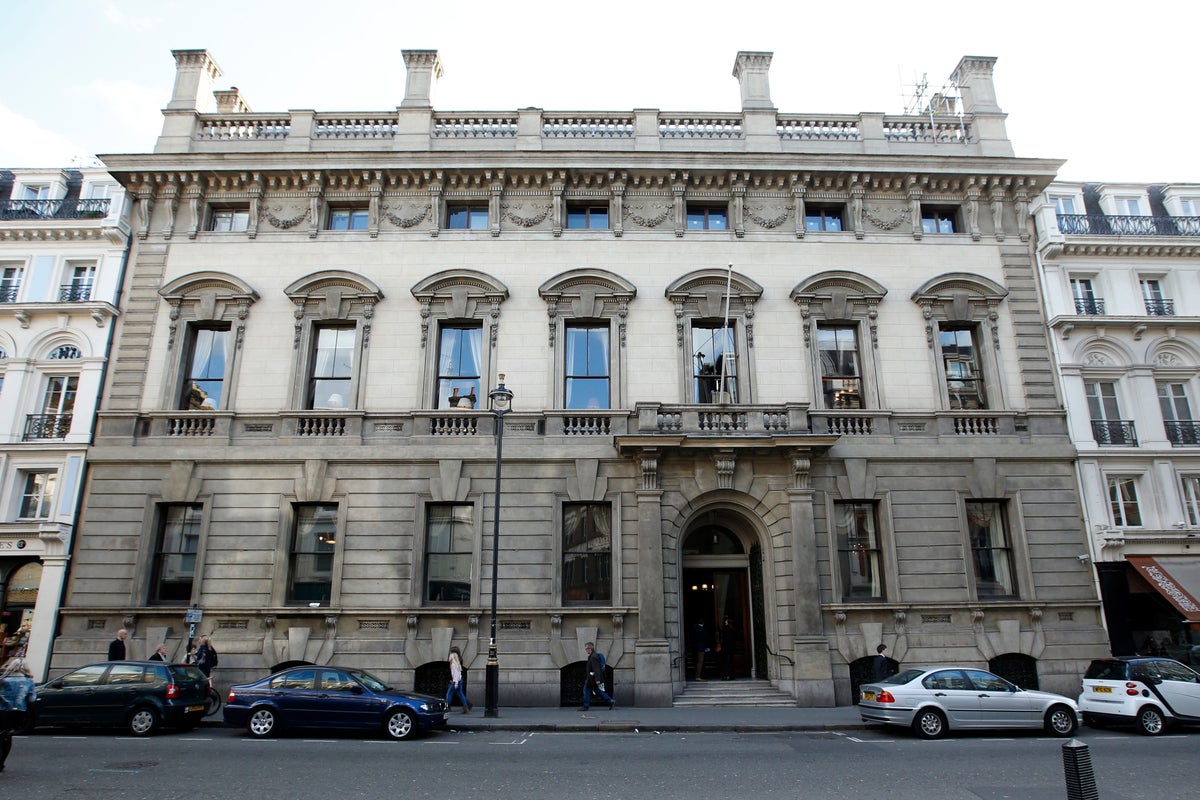
WHAT IS THE GARRICK CLUB? LONDON PRIVATE MEMBERS' CLUB ACCEPTS WOMEN FOR FIRST TIME AFTER VOTE
Women can join one of London’s most prestigious private members’ clubs after it voted for equality for the first time in its 193-year history.
Some 60 per cent of the 1,500 members of the Garrick Club in Covent Garden voted for the historic change on Tuesday (May 7) after several hours of debate.
Stephen Fry, James Naughtie, Jonathan Sumption, and Nigel Havers all spoke in favour of the change following months of speculation and controversy about exclusionism.
The row was reignited in 2022 when the lawyer who originally ruled it could bar women changed his mind and said there was no legal justification to stay men-only.
What is the Garrick Club?
Hidden in an inconspicuous building in London's heart, the club started life on Garrick Street in 1831.
It was founded by a group of literary gentlemen under the patronage of the King’s brother, the egalitarian Duke of Sussex.
The club’s name derives not from its street but from the great 18th-century actor David Garrick — and it has provided a hub for arts enthusiasts to this day.
A statement on its website reads: “The club provides excellent dining facilities, accommodation, exclusive member events, an important theatrical library that includes many manuscripts and documents, and the most comprehensive collection of theatrical paintings and drawings in existence.”
Despite the recent news, the club was founded on a mantra of providing a space for men of different standings and professions to meet on “equal terms”.
Actors Matthew Macfadyen, Benedict Cumberbatch, and Damian Lewis are among its members. The chief executive of the Royal Opera House, Alex Beard, and Antonio Pappano, the chief conductor of the London Symphony Orchestra, are also part of the group.
High court judges, current and former ministers in the Ministry of Justice, and numerous senior solicitors have declared their membership.
But no women have — but that is set to change.
In 2015, members voted by 50.5 per cent to allow both sexes but this fell short of the two-thirds majority required. The two-thirds rule no longer exists.
However, the club veered in this direction in 2010 after repealing its ban on women entering the club. From this point, women were allowed to enter to have lunch, visit, or sit at the central table of the coffee room.
Moves have not stopped there to achieve full equality.
Reacting to the historic vote, actress Juliet Stevenson said she would be "interested" in becoming a member.
Stevenson told the BBC's Radio 4 Today programme on Wednesday (May 8): "The Garrick has for hundreds of years been a club largely dedicated to the theatre community and then the arts community.
"Any club that is dedicated to that community must by definition be open to all."
To receive the best stories in your inbox every day, click here to register for one or more newsletters from The Standard.
2024-05-08T09:49:05Z dg43tfdfdgfd